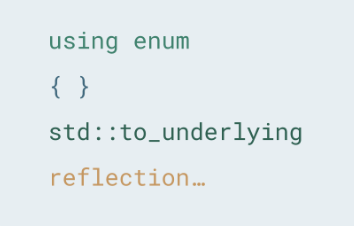CppCon 2024 Data Structures That Make Video Games Go Round -- Al-Afiq Yeong
![]() Registration is now open for CppCon 2024! The conference starts on September 15 and will be held in person in Aurora, CO. To whet your appetite for this year’s conference, we’re posting some upcoming talks that you will be able to attend this year. Here’s another CppCon future talk we hope you will enjoy – and register today for CppCon 2024!
Registration is now open for CppCon 2024! The conference starts on September 15 and will be held in person in Aurora, CO. To whet your appetite for this year’s conference, we’re posting some upcoming talks that you will be able to attend this year. Here’s another CppCon future talk we hope you will enjoy – and register today for CppCon 2024!
Data Structures That Make Video Games Go Round
Friday, September 20 14:45 - 15:45 MDT
by Al-Afiq Yeong
Summary of the talk:
Modern video games are complex beasts that contains multiple systems interacting with one another storing, transferring and processing large sets of data in real time. While some data structures from the standard library such as the std::vector gets you by 90% of the time you need to store and process data, there will be the occasional 10% that requires a unique take.
This presentation aims to discuss the unique data structures that are commonly used in video games / game engines that caters to the occasional 10%. We will go over several systems outlining their requirements, constraints and present custom data structures that gets the job done.
Al-Afiq Yeong is a Software Engineer currently working in the Engine team at Criterion. His day to day involves performance monitoring games, making sure memory gets managed efficiently and developing new technologies that will empower future games developed with Frostbite. Prior to games, he was a full stack developer maintaining and building web apps in the service, nuclear and finance industry. Outside work, he spends most of his time writing his own rendering engine while trying to avoid the allure of the games sitting in his Steam library.

 Previously, we explored a basic implementation of
Previously, we explored a basic implementation of  After reading this article, you should understand the basics of the opaque pointer pattern and how you can implement it using
After reading this article, you should understand the basics of the opaque pointer pattern and how you can implement it using  The evolution of the C++ language continues to bring powerful features that enhance code safety, readability, and maintainability. Among these improvements, we got changes and additions to enum class functionalities across C++17, C++20, and C++23. In this blog post, we’ll explore these advancements, focusing on initialization improvements in C++17, the introduction of the using enum keyword in C++20, and the std::to_underlying utility in C++23.
The evolution of the C++ language continues to bring powerful features that enhance code safety, readability, and maintainability. Among these improvements, we got changes and additions to enum class functionalities across C++17, C++20, and C++23. In this blog post, we’ll explore these advancements, focusing on initialization improvements in C++17, the introduction of the using enum keyword in C++20, and the std::to_underlying utility in C++23. The C++ language has two large categories of “don’t do that” known as undefined behavior and ill-formed program. What’s the difference?
The C++ language has two large categories of “don’t do that” known as undefined behavior and ill-formed program. What’s the difference?